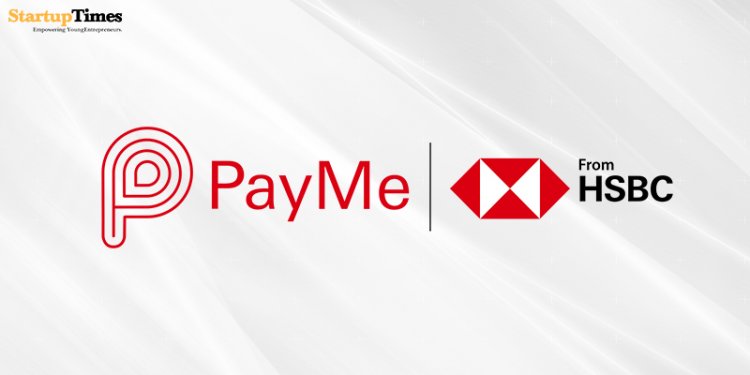A full-stack personal loan startup: PayMe India
Launched by bankers, Mahesh Shukla and Sandeep Singh, in 2016, Noida-based PayMe strives to be a full-stack digital lending, neobanking startup offering a plethora of lending products, wealth management, credit advisory, and other debts.

In 2016, when it started, PayMe began with small ticket size advance salary loans. Now, with the company venturing into a ‘pay-later' and affordable line of credit for MSMEs, it has evolved into a full-fledged personal loan company with its own NBFC license.
The motivation behind starting PayMe
When Mahesh and Sandeep started up, they knew that India is not only a capital-starved economy but also a credit-squeezed society.
They explain that people often fall into debt traps and fall victim to unfair moneylenders due to the unstructured and unorganised nature of financing in small towns and cities, and the lack of formal banking facilities.
When Mahesh moved to Delhi from a small town in Uttar Pradesh, he was disappointed to see how burdensome and expensive it was to avail a credit card or a personal loan. “Paytm had just exploded here in India. But they were also confined to payments at the time,” says Mahesh.
“Therefore, we came up with a digital solution that relied upon organically generated data to better understand the credit risk of customers with thin credit history. This model also enables us to lend across the country without the impediment of having a physical presence,” says Mahesh.
Sandeep Singh passed away last year. Mahesh notes, “This has been the biggest setback for me personally as well as for the company. Only due to his initiative and hard work were we able to get this far. We now want to take PayMe to the next level to honour his memory.”
Crew and functioning
Presently, the startup has over 100 employees. Apart from Mahesh, the core team consists of Vineet Daniel, who has over 17 years of experience and has worked with the likes of Shine, Sendinblue, and LetsBuy; Vishal Gupta, who leads Tech; Gaurav Dwivedi, who heads Operations and Collections; and Manav Munjal, who heads Risk and Compliance.
“Our platform is quite straightforward. Customers begin by downloading our mobile app and performing some basic steps to complete their KYC and provide us with their income proof, for example, the bank statement. Our machine-driven credit models process the bank statement and other information quickly to provide an initial credit limit for which the customer is approved. The customer can sign agreements with us digitally and avail of the loan instantly,” Mahesh says while explaining about the functioning of the product.
The consumer lending segment and COVID-19
The consumer lending space is an area that has been brutally hit by the pandemic. Issues with regard to lending rates, coercive methods in recovering loans, and non-consensual use of data are just a few examples.
Mahesh adds that the COVID-19 pandemic has created a spike in credit costs and non-performing assets ratio on banks and financial institutions. This has been chiefly led by widespread job losses, pay cuts, a steep liquidity crunch, and uncertainty.
The entire industry has undergone a drastic change such as rising demand for digital lending channels, contactless lending, a major change in lending models and credit appraisals. It has also witnessed the growth of genuine borrowers.
An edge over competitors
PayMe India’s competition includes Pune-based EarlySalary which had distributed over 1.6 million loans until 2020, amounting to more than ₹2,850 crore, and recorded more than 10 million application downloads. Other competitors to PayMe include Ahmedabad-based firm Credit, which does short-term loans, and Bengaluru-based CashE.
Mahesh says, “We are a tech-first lending company. This is what sets us apart from our competitors. Everything from the app to the loan management system has been built in-house. This has allowed us to onboard partners and customers quickly and effortlessly. We earn most of our revenue through processing fees and the interest spread on our loan offerings.”
By the end of December 2020, the company had touched a revenue of $2 million.
Leveraging technology
Mahesh said, “I thought of leveraging the technology ecosystem established by the early fintech companies by extending more offerings in the lending space.”
"Technology has definitely played an important role in helping lenders adapt to the new normal by reimagining the product portfolio, building a digital spine, boosting digital financial inclusion and mitigating cyber-security risks,” says Mahesh.
Future plans
According to Mahesh, the startup has raised undisclosed funding from Singapore and Dubai-based angel investors. Additionally, the company has also collaborated with credit lines from wholesale NBFCs for their lending purposes.
Mahesh notes, “Currently our goal is to engross our customers at an early stage in their life when they first require financial services. Hence, we are focussing our efforts on students and young professionals who often face a cash crisis towards the end of the month. We have also come up with a new product called ‘SALT’ just to solve this problem. SALT allows you to pay for a product or service at the time and enables you to pay for it later when you have cash in hand. This will be a game-changer for young people.”














